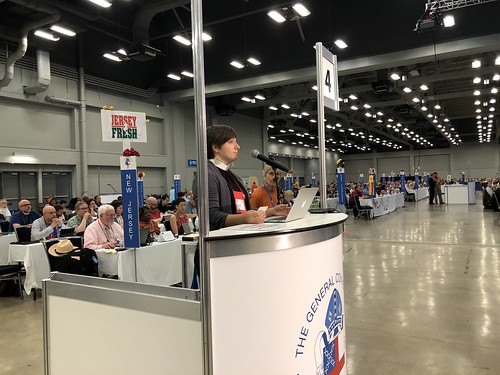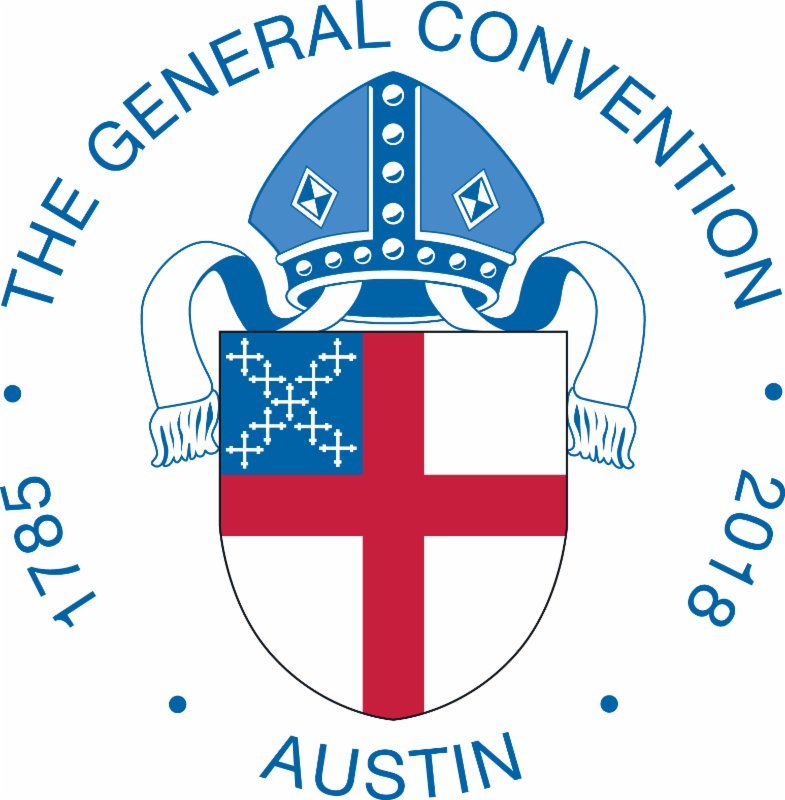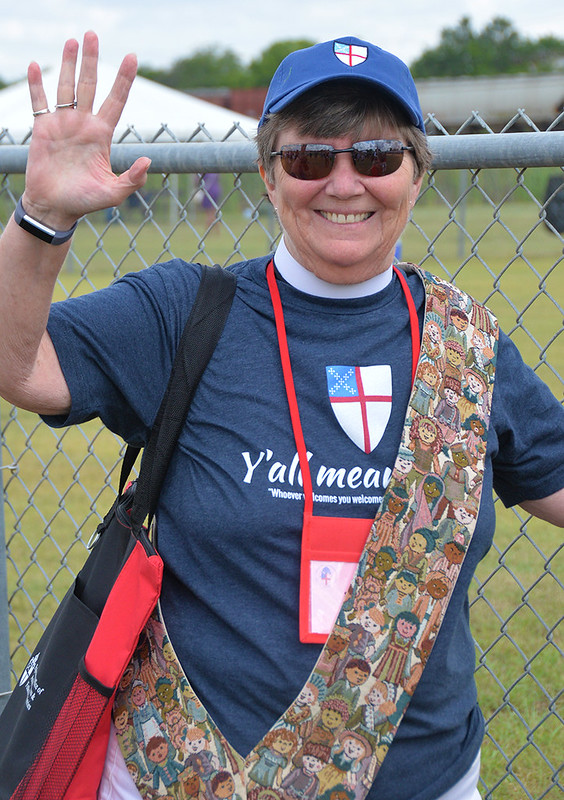 How do you re-acclimatize yourself to the way of the world after spending almost two weeks at General Convention? Two weeks of almost daily pageant like Eucharists in multiple languages with profound sermons and congregations that went on for ever; two weeks of seeing so many fellow Episcopalians on the street and in restaurants that you start to believe that our numbers are actually growing; two weeks of hearing discussions on topics that have urgent impact on our lives and our world like climate change, racial reconciliation and peace and justice for us all, and two weeks of recognition that as a church we acknowledge that we haven’t done enough for our sisters and racial minorities and are ready to welcome fully our LGBTQ+, our Cuban family and those who seek asylum in our country.
How do you re-acclimatize yourself to the way of the world after spending almost two weeks at General Convention? Two weeks of almost daily pageant like Eucharists in multiple languages with profound sermons and congregations that went on for ever; two weeks of seeing so many fellow Episcopalians on the street and in restaurants that you start to believe that our numbers are actually growing; two weeks of hearing discussions on topics that have urgent impact on our lives and our world like climate change, racial reconciliation and peace and justice for us all, and two weeks of recognition that as a church we acknowledge that we haven’t done enough for our sisters and racial minorities and are ready to welcome fully our LGBTQ+, our Cuban family and those who seek asylum in our country.
I came home to my church a bit sleep deprived and ready to answer questions I knew many would have about the convention. I got questions about the prayer book: “we still get to use the current one for awhile, don’t we?” And of course the food: “Did you enjoy the Texas BBQ?” Other concerns were oblique; did we finish all of the resolutions, did I get to sit as a delegate and was it everything I had expected?”
As a first time (alternate) delegate I have to say that it was a bit overwhelming as the biggest convention I have ever attended. There were so many people who were passionate about their issues and so many issues that were so far reaching outside of the immediate church and into the world. But then our church is a part of the world and as a church it is important that our values are addressed on the world stage. Prayer book and Lesser Feast and Fast changes will allow for greater inclusion and flexibility while preserving our rich heritage and services we love.
It was so encouraging to hear eucharists in multiple languages, giving recognition to native Americans, Koreans, people from multiple countries in Africa and the Caribbean. Services addressed God as multi gender and there is now hope that our new generation may have a broader view of the triune God than we have seen.
The Revival was spectacular open to non-Episcopalians and even the protesters on the street with music and uplifting, saving grace imparted in both English and Spanish. And the music was fantastic throughout the week with a special treat having the Choir from Christ Church Frederica and solos from the Rev. Tom Purdy’s daughter Eva stealing the show.
On the way home the airport filled with Episcopalians still feeling the afterglow of the experience. The Presiding Bishop came through and drew a natural crowd around him to hear his words of wisdom. I knew that our plane could almost fly itself with so many clergy on board and the PB himself in first class to Atlanta.
So, yes the convention was exhausting with seemingly endless hours of listening to issue after issue that made little sense on canon changes and doctrine but the intensity of love and caring that was evident for everyone there was carried out into the streets and even into our homeward journeys. People were even polite on the plane! As people of the Episcopal branch of the Jesus Movement, we have been charged to MOVE. Here’s hoping that we will continue onward.

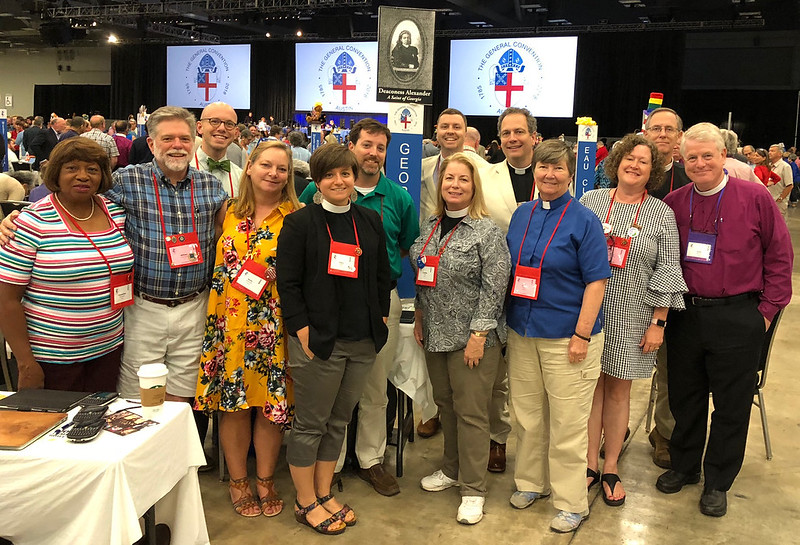
 The General Convention of the Episcopal Church meeting in Austin, Texas, voted to add Deaconess Anna Alexander (1865-1947) to its calendar of saints. This action comes after long study by the church, which began in 1998, when the Diocese of Georgia recognized her as a Saint of Georgia. Bishop Scott Benhase, the Bishop of the Episcopal Diocese of Georgia said, “I rejoice with the entire Diocese of Georgia that Deaconess Alexander is now a saint of the whole Church. Her life and witness is an inspiration to all who seek to follow Jesus as the way, the truth, and the life.”
The General Convention of the Episcopal Church meeting in Austin, Texas, voted to add Deaconess Anna Alexander (1865-1947) to its calendar of saints. This action comes after long study by the church, which began in 1998, when the Diocese of Georgia recognized her as a Saint of Georgia. Bishop Scott Benhase, the Bishop of the Episcopal Diocese of Georgia said, “I rejoice with the entire Diocese of Georgia that Deaconess Alexander is now a saint of the whole Church. Her life and witness is an inspiration to all who seek to follow Jesus as the way, the truth, and the life.” Being a priest in Cuba meant giving up what few privileges existed. Until the visit of Pope John Paul II, just holding on to the Christian faith meant being ostracized from society. They share the love of Jesus without the resources we would consider necessary to be a church. And they persevered.
Being a priest in Cuba meant giving up what few privileges existed. Until the visit of Pope John Paul II, just holding on to the Christian faith meant being ostracized from society. They share the love of Jesus without the resources we would consider necessary to be a church. And they persevered.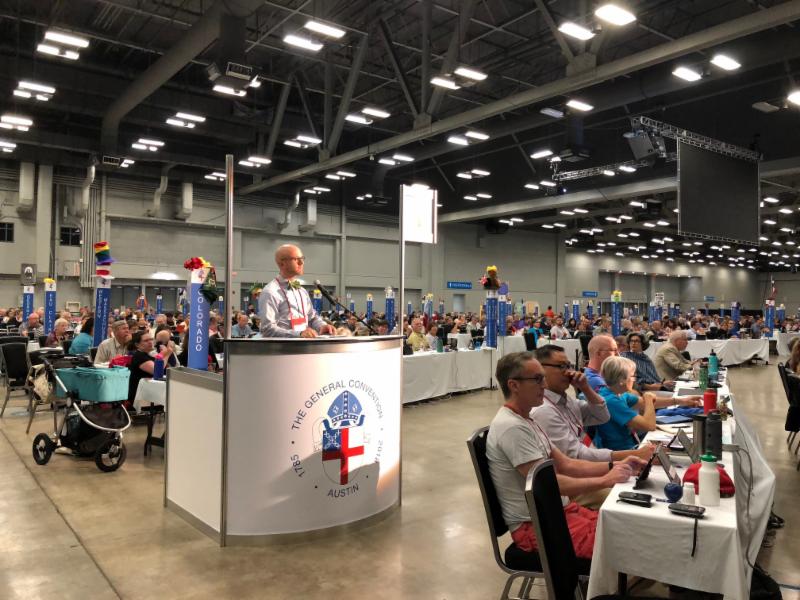 More than 1,000 deputies and bishops are working their way through the more the 400 resolutions to come before the once every three years General Convention of the Episcopal Church. The Diocese of Georgia’s Deputation is fully engaged with the work of this convention from the first committee meeting at 7:30 am until the deputation meeting ends at 10 pm. Following the convention on social media and in news reports can lead to misunderstanding due to the nature of the Convention as reports filter out after each bit of news happens in a multi-step process by which a committee takes action and then either the House of Deputies or House of Bishops takes initial action and the other House then must affirm that resolution.
More than 1,000 deputies and bishops are working their way through the more the 400 resolutions to come before the once every three years General Convention of the Episcopal Church. The Diocese of Georgia’s Deputation is fully engaged with the work of this convention from the first committee meeting at 7:30 am until the deputation meeting ends at 10 pm. Following the convention on social media and in news reports can lead to misunderstanding due to the nature of the Convention as reports filter out after each bit of news happens in a multi-step process by which a committee takes action and then either the House of Deputies or House of Bishops takes initial action and the other House then must affirm that resolution. For example, you may have read that the House of Deputies approved Prayer Book revision. That is true, but with the caveat that the path to possible revision would be a nine year one in which the first three years would be a study, which could lead to no further work. Then you could read yesterday that the House of Bishops approved Prayer Book revision, but that version of the resolution mainly called on the church to fully revise its Spanish language liturgies, while also approving for trial use some alternate language. This has been reported as using gender-neutral language for God. This is true in the sense that the alternate for the opening acclamation “Blessed be God: Father, Son, and Holy Spirit” could be given as “Blessed be God: most holy, glorious, and undivided Trinity.” But not true in the sense that no proposal would offer trial use language to substitute for every reference to God as Father, Son, and Lord, for example.
For example, you may have read that the House of Deputies approved Prayer Book revision. That is true, but with the caveat that the path to possible revision would be a nine year one in which the first three years would be a study, which could lead to no further work. Then you could read yesterday that the House of Bishops approved Prayer Book revision, but that version of the resolution mainly called on the church to fully revise its Spanish language liturgies, while also approving for trial use some alternate language. This has been reported as using gender-neutral language for God. This is true in the sense that the alternate for the opening acclamation “Blessed be God: Father, Son, and Holy Spirit” could be given as “Blessed be God: most holy, glorious, and undivided Trinity.” But not true in the sense that no proposal would offer trial use language to substitute for every reference to God as Father, Son, and Lord, for example.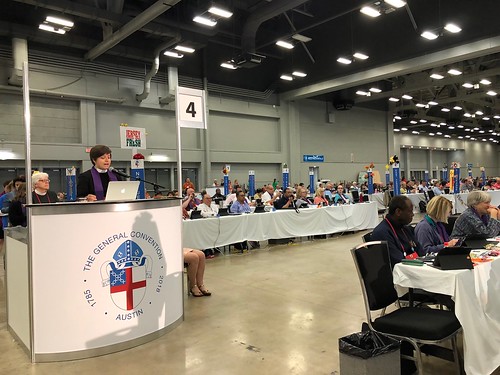
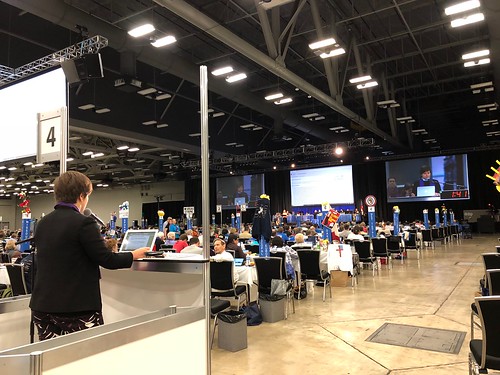
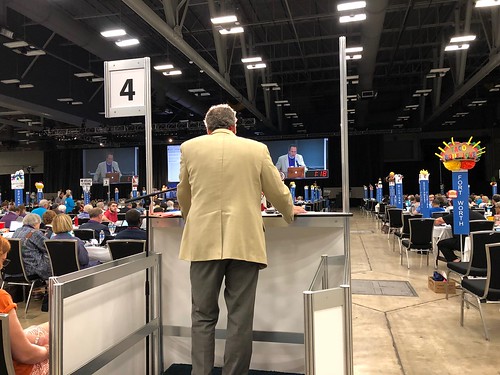
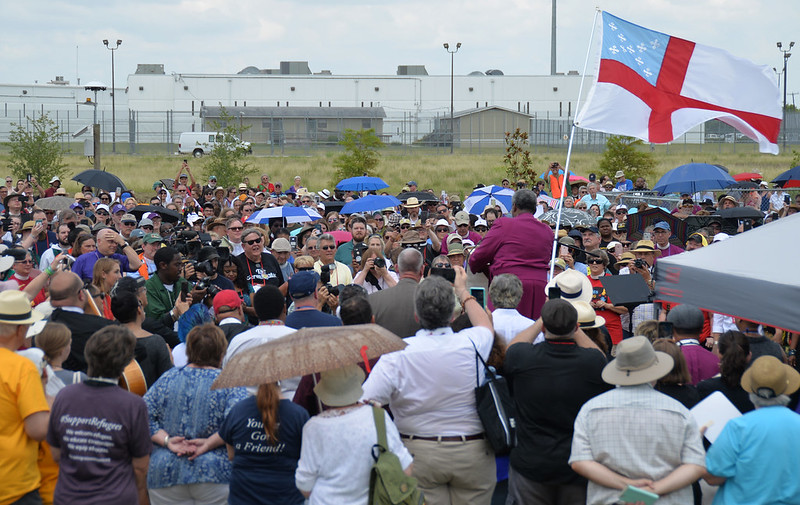
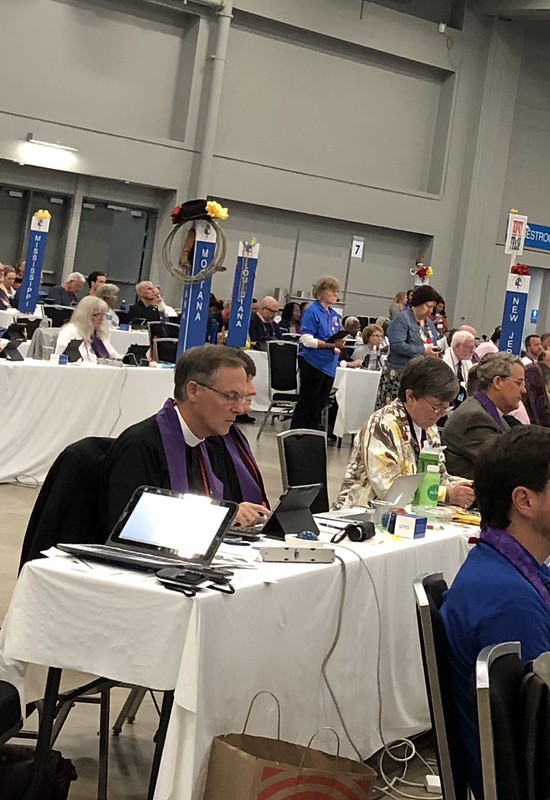 Sunday has been a busy day at General Convention. Many bishops and deputies, including some of our deputation, attended the rally for Bishops against Gun Violence. An even larger contingent was among the more than 1,000 Episcopalians who gathered at the Hutto Detention Center in Taylor, Texas to protest the treatment of refugees and especially the children of refugees. Presiding Bishop Michael Curry reminded us of Alexander de Tocqueville’s observation in the 19th Century that America is great because America is good, and then he powerfully preached that we can only be great as a nation today if first we are good, good for ALL persons.
Sunday has been a busy day at General Convention. Many bishops and deputies, including some of our deputation, attended the rally for Bishops against Gun Violence. An even larger contingent was among the more than 1,000 Episcopalians who gathered at the Hutto Detention Center in Taylor, Texas to protest the treatment of refugees and especially the children of refugees. Presiding Bishop Michael Curry reminded us of Alexander de Tocqueville’s observation in the 19th Century that America is great because America is good, and then he powerfully preached that we can only be great as a nation today if first we are good, good for ALL persons.